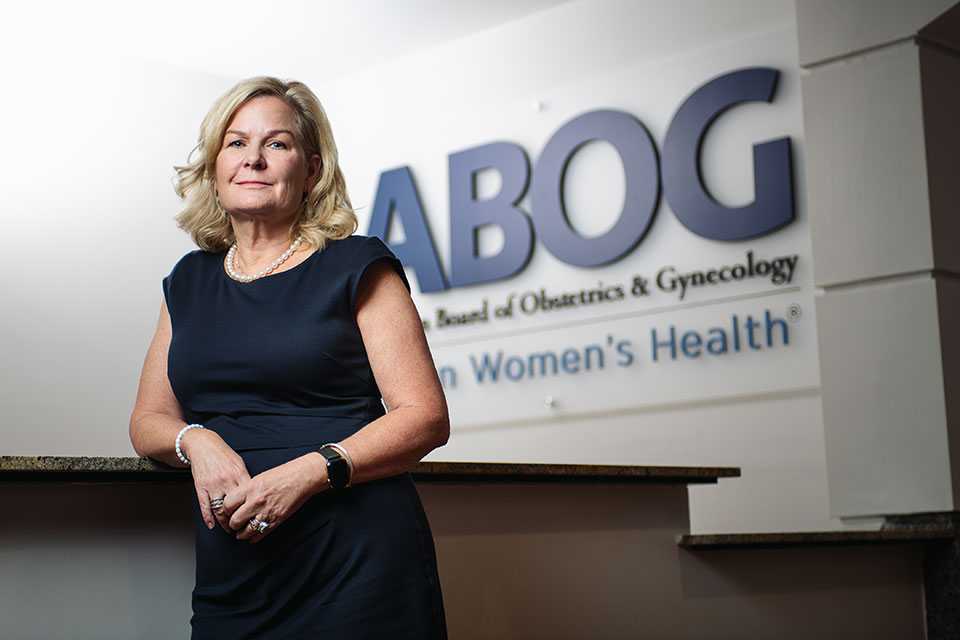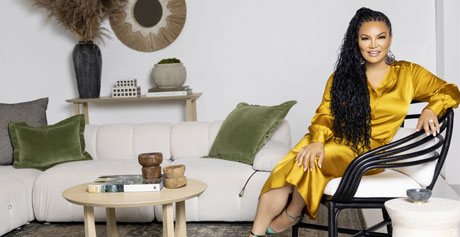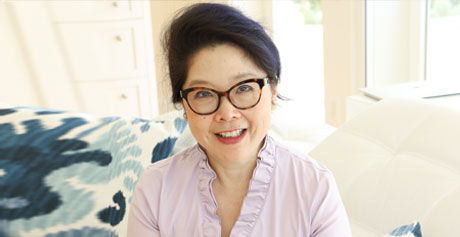Dr. Amy Young, The First Woman to Become Executive Director of The American Board of Obstetrics and Gynecology

Q: Growing up, when were you first intrigued by the health sciences?
AY: I think we all have role models that influence us in our life choices. I was lucky enough to have a female pediatrician in the mid-60s in Mississippi which was quite rare. My mother revered her (she took care of my 6 siblings). My parents had lost one of those siblings to leukemia, so they were well versed in health care and were respectful of the profession. My mother influenced my choices greatly. I also was raised in a home where learning expectations for my female siblings were not different from my male siblings. I was not burdened with the idea that girls were not good in math and science, so from an early age, all subjects interested me. However, I was drawn to science and math. My mother’s much younger brother, my uncle, was going through medical school when I was in elementary school and was also an individual I looked up to. I declared early that medicine was something that I would do. I liked to understand, and still do today, how things work, and this applies to human anatomy and physiology.
I also recognized and valued the relationships that doctors had with patients from an early age, as I was also influenced by some wonderful health care professionals as a child. I never really detoured from that vision. One of the unique things about my career choice, and especially the field of women’s health, is how important advocacy for your patients can be. I should mention that as a teenager, I flirted with the idea of being a career politician, but that interest did not last long.
Q: Did you consider another field of healthcare before deciding on women’s health?
AY: I loved all my rotations in med school except for one specialty. I had a very difficult time deciding what to be. I was lucky in my med school in that we had a program that took your preferences and input from those close to you and matched them to those preferences and practices of those that were active professionals in their respective fields. I loved specialties where you could pro-vide the ultimate care - for the most part - to the patients (surgical and medical) and where continuity and relation-ships were important. I enjoyed preventive medicine. I was initially so undecided that I applied in three differ-ent areas for residency programs and eventually elimi-nated the other two. One was not procedural enough, and the other was too specialized. To be able to care for a woman through her lifecycle is a privilege, and when you are lucky, you may also provide care to her mother and her daughter in different aspects of their lifecycles. Although I did not recognize it at the time, the variety that women’s health care provides on a day-to-day and longitudinal trajectory also was and continues to be very appealing. The nature of being able to be on both the medical and surgical side enables communication with other disciplines and has led to many rewarding leader-ship opportunities.
Q: Did you have family that was in the health-care field to inspire you?
AY: As I previously stated, I have an uncle who is still a practicing physician who influenced me greatly. He is an infectious disease doctor who has worked globally for most of his career. He is an expert in leishmaniasis, malaria, and HIV. I was lucky enough to have just visited him in Cambodia where his team is undertaking import-ant preventive work in HIV transmission.
Q: Do you consider mentorship a contributing factor to your success?
AY: Mentorship, or rather sponsorship, has been essential to me in my career, and it is something that I try to pay forward. One unique aspect of my career, I think it is unique, is that I have not had one single mentor, but I have been fortunate enough to have had exposure to many great leaders, and for me, great female leaders, and I have taken advantage of learning and sometimes emulating some of their best assets. Sponsorship is very important because it is not just having someone show you the way, it is someone opening doors for you and some-times pushing you through. I have also been fortunate to have had a great executive coach for many years, and I think this relationship has been helpful to me in helping me prioritize what is important. She has also been able to hold a “mirror” up for me to be able to see myself as others see me, both the good and the bad, in a way that is nonjudgmental and impersonal. She has helped me see the impact that I can make and worry less about imperfections and missteps.
I also want to take a moment to credit the teams with which I have worked. Having a great team with what I like to call “The Three Musketeer” mentality is so important. They have your back, and you have theirs. This type of team is empowering and allows one to be their best self. These teams can be elusive, so if you have one or built one, hang onto it. You do not know when you will find your next one.
To read more of our exclusive interview with Dr. Amy Young, click here.

